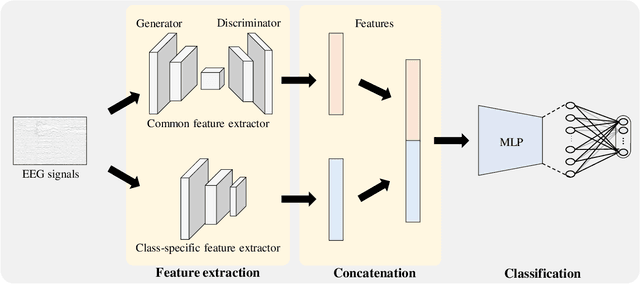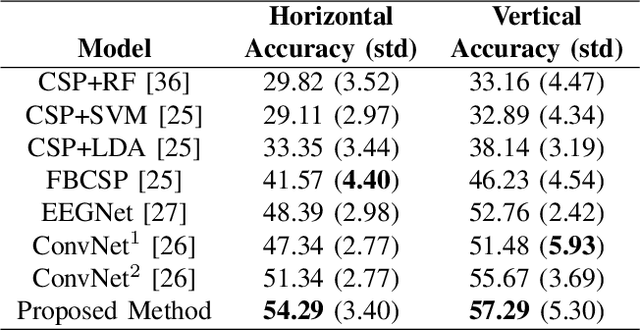A Factorization Approach for Motor Imagery Classification
Paper and Code
Dec 13, 2021


Brain-computer interface uses brain signals to communicate with external devices without actual control. Many studies have been conducted to classify motor imagery based on machine learning. However, classifying imagery data with sparse spatial characteristics, such as single-arm motor imagery, remains a challenge. In this paper, we proposed a method to factorize EEG signals into two groups to classify motor imagery even if spatial features are sparse. Based on adversarial learning, we focused on extracting common features of EEG signals which are robust to noise and extracting only signal features. In addition, class-specific features were extracted which are specialized for class classification. Finally, the proposed method classifies the classes by representing the features of the two groups as one embedding space. Through experiments, we confirmed the feasibility that extracting features into two groups is advantageous for datasets that contain sparse spatial features.
 Add to Chrome
Add to Chrome Add to Firefox
Add to Firefox Add to Edge
Add to Edge